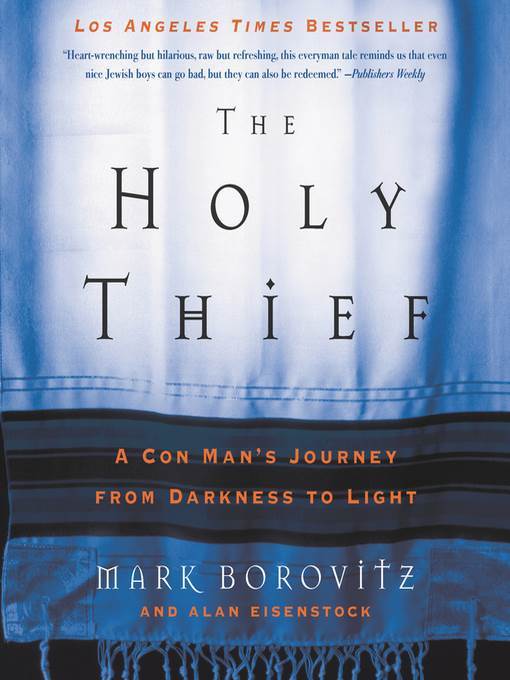
The Holy Thief
A Con Man's Journey from Darkness to Light
کتاب های مرتبط
- اطلاعات
- نقد و بررسی
- دیدگاه کاربران
نقد و بررسی

Starred review from July 26, 2004
Borovitz started with petty thievery—baseball cards, candy, marbles—at age eight. By 14, shortly after the death of his father, he became a middleman, and at 25, he beat two middle-aged men at their own scam. Through most of this he maintained a second life as a nice Jewish boy who went to shul, said kaddish every day for a year for his father, looked out for his sister and turned over much of his ill-gotten gains to his mother to support the family. The scams got bigger, the trail got hotter and eventually he was caught. It took two stints in jail for him to learn that crime doesn't pay, but Borovitz attacked his reformation with the same zeal he once applied to intricate cons. His decision to become a rabbi at age 50 seems nothing less than natural. Borovitz is a storyteller at heart, so it's easy to see how he conned so many for so much. Just as natural is his commitment, with his wife, to Beit T'Shuvah
, House of Return, a place for souls lost to addiction and themselves. Heart-wrenching but hilarious, raw but refreshing, this everyman tale reminds us that even nice Jewish boys can go bad, but they can also be redeemed.

September 1, 2004
Rabbi Borovitz manages an addiction treatment center in Los Angeles. Devoted to helping those most troubled souls of society, he also knows those troubles firsthand. A career thief and con man, he did not begin to change until his second term in prison, where association with the prison rabbi led him toward a meaningful life. When released, he began work at a community center, where he recognized that he was an alcoholic and that his marriage was over. After divorcing, he married a woman who now works with him at the center. Together, they evolved an organization that successfully treats those with the most serious addictions. Borovitz's philosophy is "that every life is worth fighting for. Every soul can heal." The text is based on interviews with Borowitz and people who know him, conducted and put into narrative form by Eisenstock. Unfortunately, it ends without many details of the rabbi's more recent life. Readers are left with an engaging story of redemption, though one that has been told many times before. Recommended for public libraries. Jerry Shuttle, East Tennessee State Univ. Lib., Johnson City
Copyright 2004 Library Journal, LLC Used with permission.

August 1, 2004
At the age of 14, Borovitz began selling stolen goods for the Cleveland mob to help support his family after his father's death. At 20, he started carrying a gun, but his "weapon of choice was a checkbook." He got into insurance frauds, armed robbery, and kiting checks. When two mobsters he had scammed put a hit out on him, Borovitz moved to Los Angeles and continued his life of "hustling, drinking, and madness." From 1982 to 1988, Borovitz, a Jew, was in and out of prison. In 1987, in the state prison in Chino, California, he began studying the Torah, was married in 1990, and, in the mid-1990s, ordained as a rabbi. He's now the spiritual leader of an in-patient rehab center in Los Angeles, designed to serve Jewish drug and alcohol addicts. Reading like fiction, it's nevertheless a true story.(Reprinted with permission of Booklist, copyright 2004, American Library Association.)

























دیدگاه کاربران